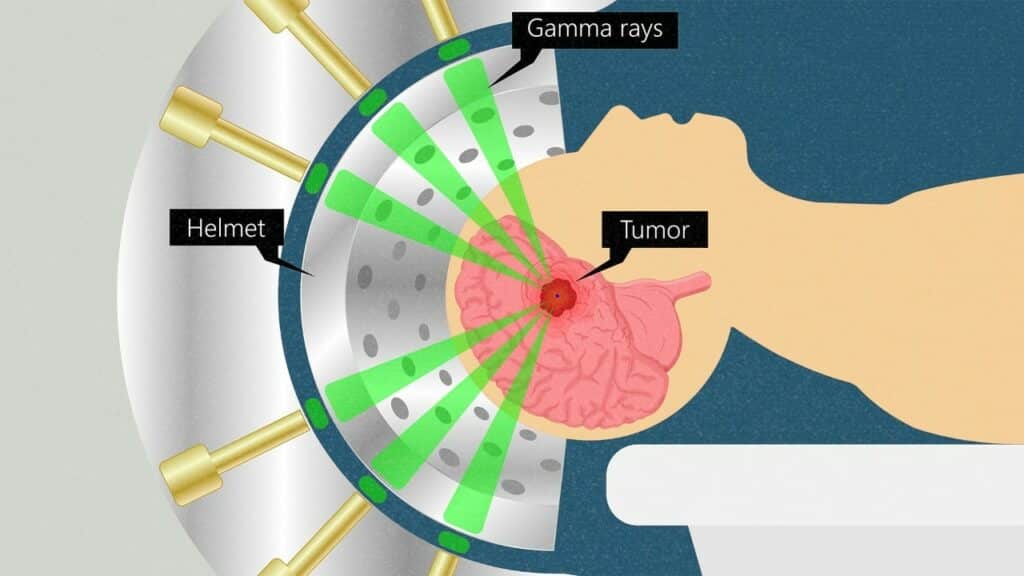Tiredness and fatigue may occur for the first few weeks after stereotactic radiosurgery. Swelling. Swelling in the brain at or near the treatment site can cause signs and symptoms such as headache, nausea and vomiting.
Who can opt for Stereotactic Radiosurgery?
Stereotactic Radiosurgery is recommended to patients;
- Whose tumours are not surgically accessible or they are at a substantially advanced stage.
- Who are too old to undergo the conventional surgery.
- Who cannot tolerate anesthesia.
Advantages of Stereotactic Radiosurgery
- Patients with brain tumors are known to have less cognitive deterioration after treatment.
- As there is no physical incision, the risk of complication is also reduced.
- It treats multiple tumors simultaneously.
- An SRS treatment does not require prior hospitalization as is done in conventional surgery.
- Preserves healthy tissues, as the therapy is guided to targeted areas with extreme precision.
- Hospitalization is short and in rare cases will need overnight stay.
- Recovery from an stereotactic radiosurgery procedure is faster.
What Other Conditions Does SRS Treat?
Other than treating brain tumours and any residual tumour cells post-surgery, SRS is administered to treat the following conditions:
- Arteriovenous Malformations
- Cancers in the eye
- Epilepsy
- Neurological Problems
- Parkinson’s Disease
- Pituitary Tumours
Impact of Stereotactic Radiosurgery on Brain Tumor Treatment
As is known, an SRS is a highly specialized treatment for brain tumours. It’s effectiveness lies in the precise targeting of the tumours and inflicting little to no damage to the adjacent tissues. SRS is recommended to patients with up to three brain metastases. SRS treatment aims to eliminate tumours, or stabilize and shrink them so that they are ineffective after treatment. As it is a treatment that can be completed in one day, it also does not interfere as much with the delivery of chemotherapy.
A distinct impact of SRS on brain tumour treatment is that it causes less cognitive deterioration in patients. This was the finding of an 11-year old study. It was undertaken on a group of 111 patients assigned SRS only and 102 patients who were assigned SRS followed by Whole Brain Radiation Therapy (WBRT). There was less cognitive deterioration at three months in patients treated with SRS alone. The Quality of Life was also higher in this group at three months. The functional independence at three months was not significant between the two groups.
Brain Tumour Treatment in India
Brain tumor treatment in India is offered at reputed hospitals in the major cities. India’s location as a prominent South Asian country and its developed healthcare facilities and world-renowned medical professionals makes it a chosen destination for medical treatment
Radiosurgery treatment in India is also among the best in the world. Latest in stereotactic radiosurgery is the Proton Beam Therapy (PBT), which is at present only offered by a popular hospital chain in the country. As one of the most affordable places for stereotactic radiosurgery treatment in the world, increasingly more and more foreign patients are flying to India. The treatments here are offered at 1/6th of what it costs in other countries. Some of the treatments and their associated indicative costs are as follows:
- Cyber Knife Radiosurgery : $6800-$8000
- Gamma Knife Radiosurgery : $5800-$6500
- Linear Accelerator : $6500-$8000
To speak with our patient care expert about stereotactic radiosurgery treatment in India







